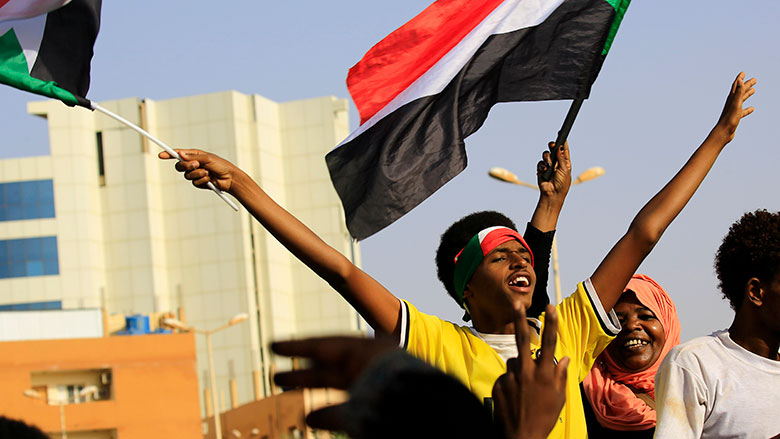A group of rich countries said on Friday that it would cancel much of the debt owed by Sudan to help the country back into the international fold.
Talks that ended late on Thursday “allowed us to reach an historic agreement… to manage Sudan’s debt”, said Emmanuel Moulin, head of the Paris Club of roughly 20 wealthy nations.
Members of the group aim to coordinate “sustainable solutions” to states facing financial problems.
“Of debts that total $23.5 billion, we have cancelled $14.1 billion and will reschedule the rest,” said Moulin, who is also director of the French Treasury.
At some point in the future, most of the rescheduled debt will likely be cancelled as well, he added.
A statement issued later by the Paris Club “congratulated Sudan for the strong measures of poverty reduction and ambitious economic reforms” that led to the decision.
Based on the terms of a Heavily Indebted Poor Countries (HIPC) Initiative, it said that the remaining debt reduction could be achieved by June 2024 at the latest.
“On an exceptional basis, considering Sudan’s very limited capacity of payment, and provided that it continues to implement satisfactorily an IMF supported program, no payments are expected from Sudan until at least 1 December 2024,” the statement said.
The announcement came as part of a wider effort by the International Monetary Fund to relieve more than $50 billion of Sudan’s debt, around 90 percent of its total, in the coming years.
Sudan piled up heavy foreign debts under former president Omar al-Bashir, who was ousted in an April 2019 palace coup following mass protests against his rule.
READ ALSO: Army says final farewell to slain Maj. General Hassan Ahmed at his burial in Abuja
The country is now governed by a transition government comprised of civilians and military officials and is trying to re-integrate international institutions, with help from major donors.
The Paris Club’s decision marks the “international community’s support for a democratic transition in Sudan,” Moulin noted.
The group’s statement urged funds in Abu Dhabi, the Czech Republic, Kuwait and Saudi Arabia — which had observed the talks — to follow its lead.














